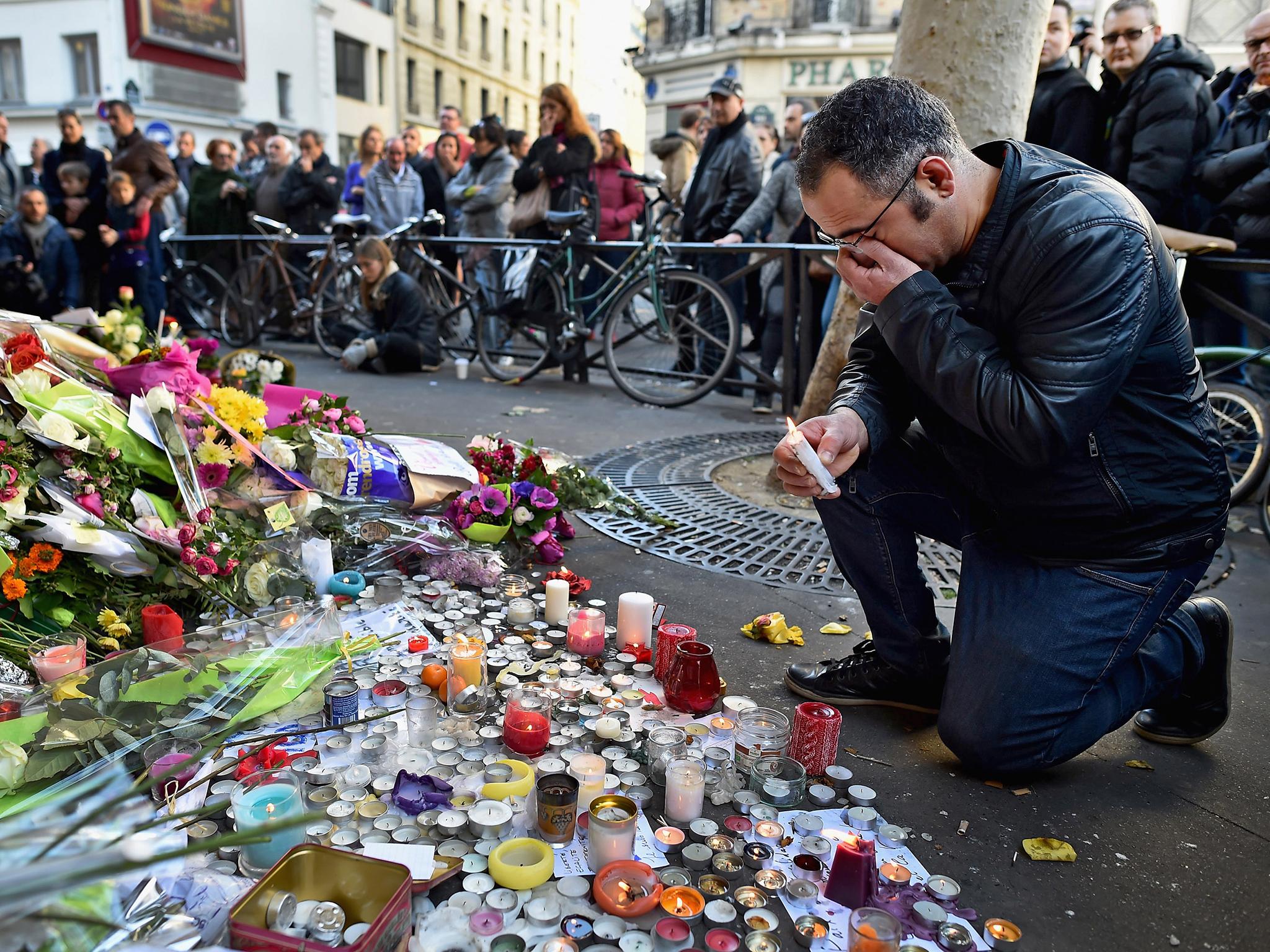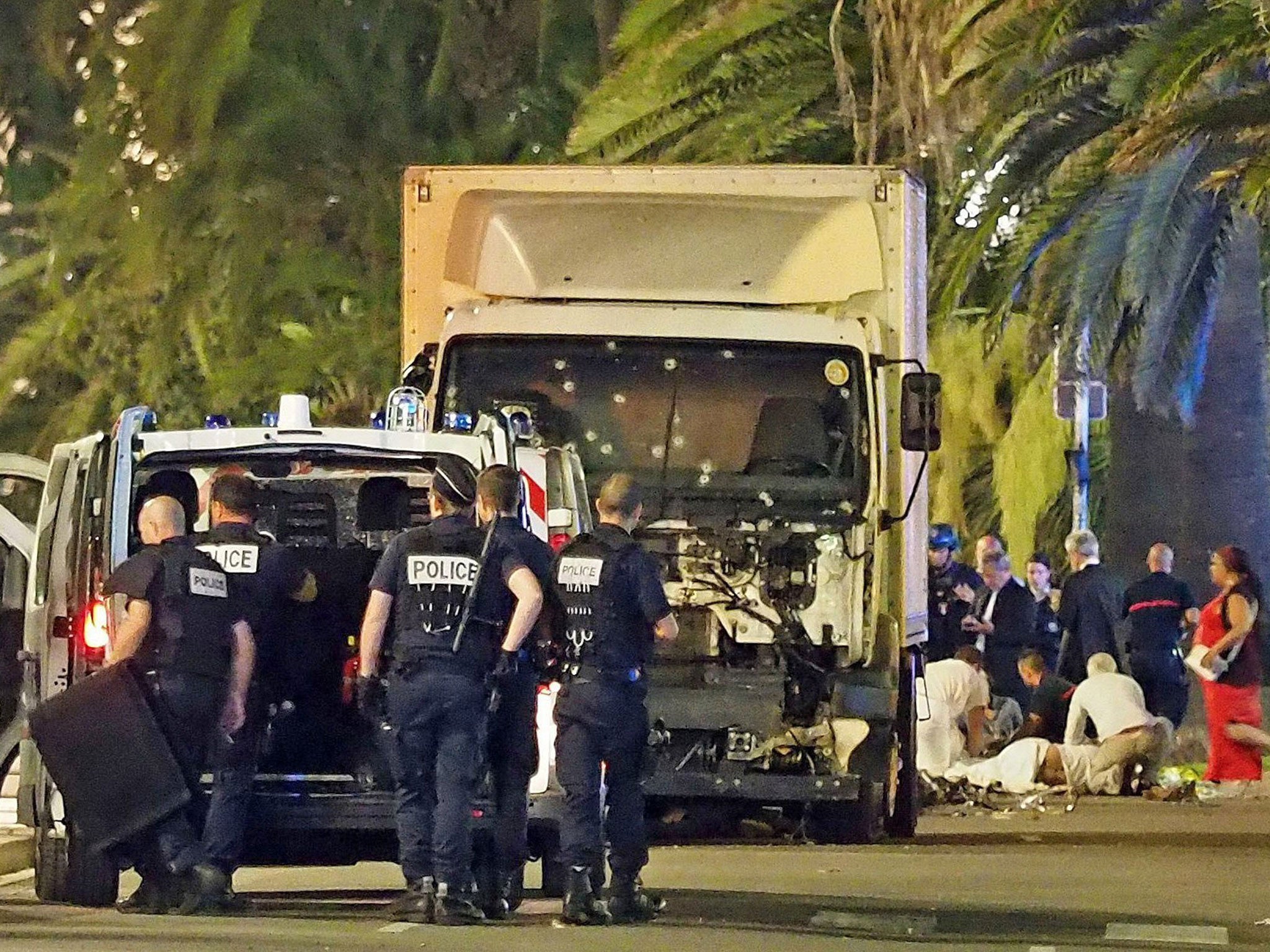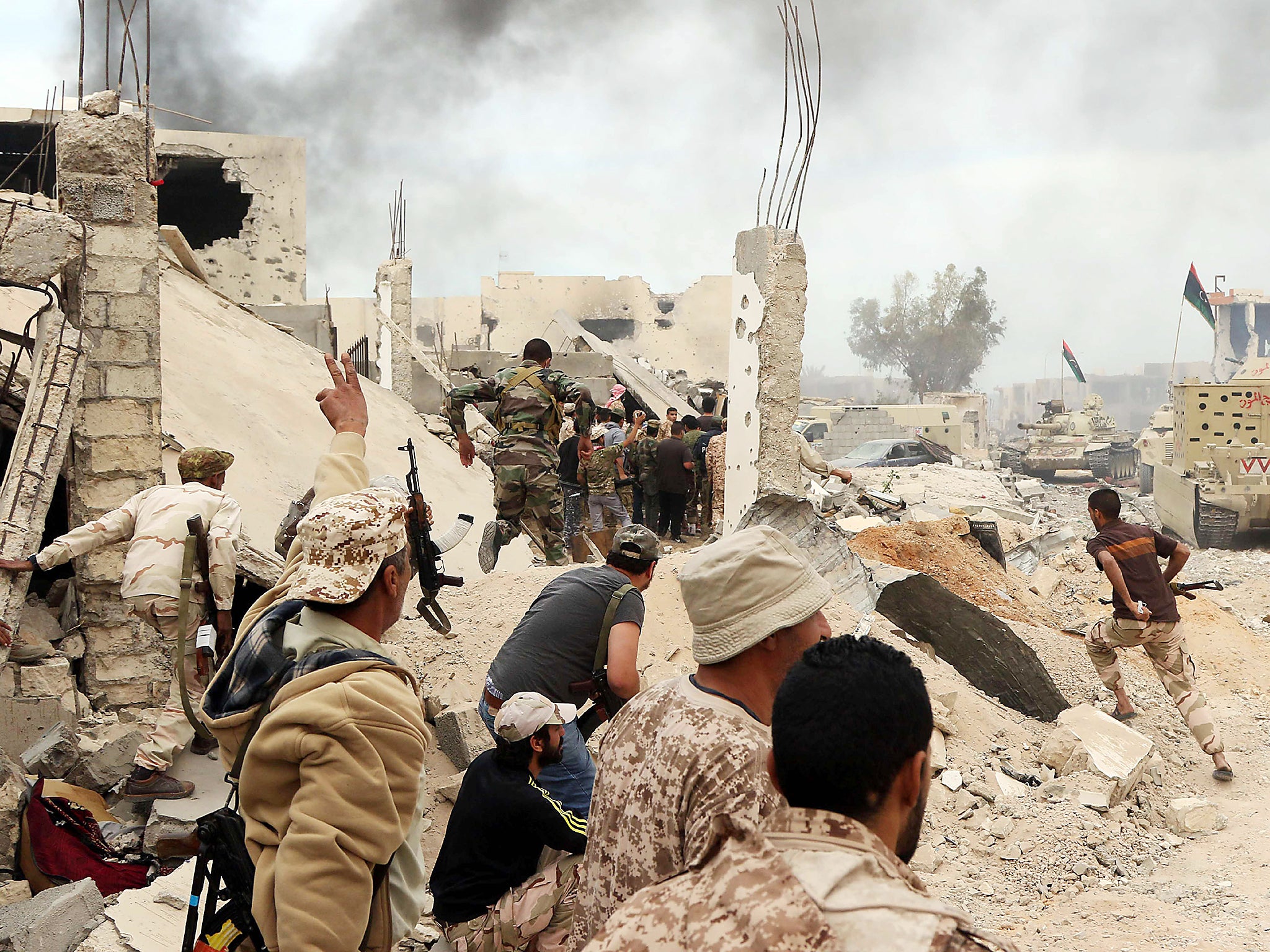Isis could unleash car bombs and chemical weapons on Europe as new terror tactics employed, Europol warns
Report warns that threat will continue even if Isis is defeated in Iraq and Syria

Your support helps us to tell the story
From reproductive rights to climate change to Big Tech, The Independent is on the ground when the story is developing. Whether it's investigating the financials of Elon Musk's pro-Trump PAC or producing our latest documentary, 'The A Word', which shines a light on the American women fighting for reproductive rights, we know how important it is to parse out the facts from the messaging.
At such a critical moment in US history, we need reporters on the ground. Your donation allows us to keep sending journalists to speak to both sides of the story.
The Independent is trusted by Americans across the entire political spectrum. And unlike many other quality news outlets, we choose not to lock Americans out of our reporting and analysis with paywalls. We believe quality journalism should be available to everyone, paid for by those who can afford it.
Your support makes all the difference.Isis is likely to carry out new terror attacks across Europe in the “near future” as jihadis consider car bombings, chemical weapons and other methods to maximise casualties, security services have warned.
A new report by Europol, the EU-wide law enforcement agency, found that the terrorist group was changing its modus operandi as militants are driven out of key strongholds in Syria and Iraq.
Britain is among the top targets for atrocities, with at least 12 attempted attacks foiled in the past three years, and the threat level could now be increasing with the return of defeated foreign fighters with weapons training and links to Isis commanders.
Gilles de Kerchove, the EU’s counter-terror coordinator, said the danger will last for years as battles against Isis continue in the Middle East and North Africa.
“These people are trained to use explosives and firearms and they have been indoctrinated by the jihadist ideology,” he added.
“An effective response requires a comprehensive approach and long term commitment.”
Intelligence services estimate that several dozen jihadis under Isis’ direction are already present in Europe with the capability to commit terrorist attacks, but Europol warns of the additional risk of “lone wolf” terrorists who have no direct contact with the group.
While the deadliest attacks so far, in Paris on 13 November 2015, were directed by Isis and carried out by militants deployed from its Syrian territories, the Nice attack and a succession of terrorist murders in France, Belgium and Germany were committed by extremists with no external aid or training.
Europol’s report, by the European Counter Terrorism Centre, said the vast majority of attackers in Europe have been young men with a criminal past, who feel discriminated, humiliated and marginalised in society, and may have mental health issues.
Not all are strict Muslims and may have recently converted to the religion, or solely to Isis ideology, either on their own or through terrorist recruiters.
“Religion may thus not be the initial or primary driver of the radicalisation process, but merely offering a ‘window of opportunity’ to overcome personal issues,” analysts said.
The report raised concern that Syrian refugees may be targeted by recruiters as Isis seeks to gather support for its cause by “inflaming the migration crisis to polarise the EU population and turn sections of it against those seeking asylum”.
The group uses a network of recruiters as well as a sophisticated propaganda machine churning out videos, magazines, terror manuals and websites aimed at gathering supporters and inciting attacks.
Abu Mohammad al-Adnani, the Isis propaganda chief who was killed in a drone strike in August, released a video in May calling on anyone prevented from travelling to the so-called “caliphate” to wage jihad in their home countries.
“Make examples of the crusaders, day and night, scaring them and terrorising them, until every neighbour fears his neighbour,” he urged ahead of a fresh spate of attacks in Europe.
“Know that your targeting [of] those who are called ‘civilians’ is more beloved to us and more effective, as it is more harmful, painful, and a greater deterrent to them.”
Europol warned that potential targets are difficult to predict as all countries participating in the US-led coalition’s air strikes have been singled out in propaganda videos, with a growing preference for “soft targets” like public transport that have little security and provoke “maximum fear”.

“Indiscriminate attacks have a very powerful effect on the public in general, which is one of the main goals of terrorism: to seriously intimidate a population,” the report said, adding that attacking critical infrastructure like power grids and nuclear facilities is “currently not a priority”.
Europol also says the consensus among intelligence agencies in EU member states is that “the cyber capabilities of terrorist groups are still relatively low”, but adds that “the possibility of terrorist-affiliated cyber groups engaging in cyber warfare sponsored by Nation States – those with capacities to engage in this type of attacks – should not be discounted.”
Terrorists are known to have acquired hand grenades, rocket launchers, and high-grade plastic explosives and detonators from organised crime groups in Europe, while Isis magazines contain instructions on making TATP – the homemade explosive used in the Paris and Brussels attacks, as well as the 2005 London bombings.
Europol said suicide bombings, shootings, car rammings and stabbings are likely to remain the main mean of attacks as terrorists turn to the most easily available weapons.
But its report warned that methods used in atrocities in Syria and Iraq may be exported to Europe, including car bombs, kidnappings, extortion and the possible use of chemical or biological weapons.
Moroccan authorities dismantled an Isis cell planning attacks potentially involving chemical weapons in February, discovering biological agents among a cache of weapons from Libya to foil a “catastrophic” attack.

Libya, which remains locked in a continuing civil war following the British-backed ousting of Muammar Gaddafi, threatens to become “a second springboard” for Isis attacks on Europe, Europol’s report warned.
Militants are losing ground in their stronghold of Sirte, but the country is still a major destination for foreign fighters, bolstered by a free flow of weapons and “unlimited places in which jihadists could be trained for future terrorist attacks”.
The report also warned that Isis was not the only group with the intent and capability to carry out atrocities in the West, with al-Qaeda and its former affiliate Jabhat al-Nusra continuing to inspire attacks including the Charlie Hebdo massacre.
Rob Wainwright, the director of Europol, said police and security services were intensifying cooperation to combat the threat, causing an increase in terror arrests and the foiling of several plots.
“This shows that the increased cooperation and exchange of data between all relevant services across Europe is a successful means to mitigate the threat posed by Isis,” he added.
“Nevertheless, this report shows that the threat is still high and includes diverse components which can be only tackled by even better collaboration.”
The report concluded that the scale, frequency and impact of terror attacks was rising in the EU and that new attempts are “likely to take place in the near future”, adding: “As long as Isis remains a factor in Syria and Iraq, and even if they are defeated there, they will continue with their attempts to encourage and organise terrorist attacks in the EU.”
Join our commenting forum
Join thought-provoking conversations, follow other Independent readers and see their replies
0Comments